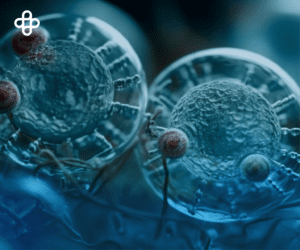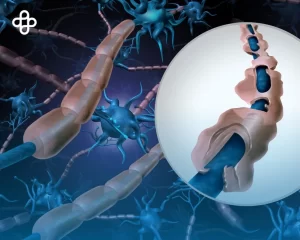Thyroid and Regenerative Medicine: Thyroid and Regenerative Medicine: The thyroid, a small butterfly-shaped gland located at the base of the neck, plays a crucial role in regulating the body’s metabolism. Although it is small in size, the thyroid gland has a significant impact by producing hormones that influence virtually all the body’s organs and systems. However, thyroid disorders are quite common and can have a substantial impact on health. Now, we will explore thyroid issues, and how regenerative medicine is offering new hope for treatment. And how to address these conditions.
The Thyroid and Its Functions
To understand the importance of the thyroid, it’s essential to know its functions. The thyroid gland secretes two primary hormones: triiodothyronine (T3) and thyroxine (T4). These hormones are critical for regulating metabolism. Which means they affect the rate at which the body converts food into energy. Additionally, the thyroid influences heart rate, body temperature, blood pressure, and the menstrual cycle in women.
When the thyroid doesn’t function correctly, two main conditions can occur: underactivity (hypothyroidism) or overactivity (hyperthyroidism). In hypothyroidism, the thyroid gland doesn’t produce enough hormones, which can lead to a decreased metabolic rate, fatigue, weight gain, cold intolerance, and other symptoms. On the other hand, in hyperthyroidism, the thyroid produces an excessive amount of hormones, which can accelerate metabolism and result in symptoms like excessive sweating, weight loss, irritability, and anxiety.

Regenerative Medicine: A New Approach
Traditionally, thyroid disorders are treated with medications. As well as hormone replacement therapy or surgery. These approaches can be effective in many cases, but they are not always suitable for all patients. Moreover, medications often need to be taken for life. Which can be costly and come with unwanted side effects.
Regenerative medicine comes into play here. It is a rapidly growing medical discipline that focuses on repairing, replacing, or regenerating damaged tissues and organs. While still in development, regenerative medicine has shown promise in treating thyroid disorders.
One of the most exciting approaches of regenerative medicine concerning the thyroid is the use of stem cells. Stem cells are special cells with the unique ability to transform into various cell types in the body. In the case of the thyroid, stem cells could be used to replace or repair damaged or dysfunctional thyroid cells.
Stem Cell Therapy and the Thyroid
Stem cell therapy is a field of regenerative medicine that has captured the attention of researchers and doctors worldwide. This therapy is based on the unique ability of stem cells to regenerate damaged tissues and organs. In the context of thyroid disorders, research, and clinical trials have been conducted to evaluate the effectiveness of stem cells in the treatment of hypothyroidism and hyperthyroidism.
In the case of hypothyroidism, the use of stem cells to replace damaged or absent thyroid cells is under investigation. Although this area of research is in its early stages, initial results are promising. Some patients who have received stem cell therapy have observed significant improvements in hormone levels and a reduction of symptoms.
In hyperthyroidism, stem cells have been used to modulate the overactive thyroid function. This is achieved through the controlled differentiation of stem cells into normal thyroid cells, helping to normalize hormone production.

Challenges and Future Outlook
Despite the exciting advances in using stem cells and regenerative medicine to treat thyroid disorders, significant challenges remain. One of the primary challenges is identifying the proper source of stem cells for thyroid treatment.
Furthermore, Large-scale clinical trials need to rigorously evaluate the safety and efficacy of these approaches. While initial results are encouraging, it is essential to ensure that these treatments are safe and reliable before they become available to a broader audience.3
In the future, regenerative medicine may provide new hope for people struggling with thyroid disorders. As research progresses and new techniques are developed. We may see significant advancements in the treatment and management of these conditions. Stem cell therapy and other regenerative medicine approaches have the potential to improve the lives of those with thyroid disorders, providing them with a better quality of life and reducing the need for lifelong treatments.
In summary, the thyroid is a crucial gland that plays a significant role in regulating metabolism and overall health. Thyroid disorders are common and can have a substantial impact on people’s quality of life. Regenerative medicine, particularly stem cell therapy, holds promise for addressing these disorders and offering new hope for those affected.
Finally, I invite you to read our article What is the Thyroid? Understanding Its Functions and Disorders





